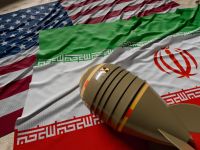Saudi Arabia’s telecommunications sector is experiencing a period of frantic activity, as cellular phone capacity is soaring, the number of digital phone lines is increasing, while data and Internet services are expected to receive an early upgrade. Furthermore, a major expansion to the fixed phone line network should also take effect in the coming months.
Earlier this year, the Saudi telecommunications company signed an agreement with two foreign companies: the American “Lucent Technologies” and the German “Siemens”. This agreement called for the two companies to supply 24 modems to the 350,000 local Internet subscribers, in an effort to strengthen these services in the country. The contract is worth SR 200 million ($54 million).
Every year, approximately 150,000 personal computers are sold in Saudi Arabia. The annual growth rate of this market is currently estimated at 20-25 percent and is expected to increase with the expanding use of Internet throughout the kingdom.
The privatization of the Saudi Telecommunications Company (STC), as advised by the U.S. investment bank J.P. Morgan, has injected new life into a sector formerly lagging behind its equivalents in other gulf states, due to its conservative state-run management tactics.
The ‘face-lift’ provided to the sector has largely become reality due to the STC’s ability to obtain full control of its revenues, which translate into its improved ability to provide a wider range of services at a lower cost for both home and office users.
Major structural changes are in the works for the Saudi telecommunications sector. A new legal framework and regulatory authority are among reforms expected in the near future.
But despite all this, some argue that the veteran Saudi telecom sector is not keeping pace in an industry that changes so rapidly. For while fixed line companies are being downgraded, mobile phone interests are selling at a premium. Furthermore, some sources reveal that it may be extremely difficult to locate and maintain long-term overseas investors interested in a stake in the STC.
Telephone-density in the kingdom was pegged at between 12-14 percent at the end of 1999; STC seeks to greatly expand this figure. Fixed-line capacity has soared from 2.9 million at the end of 1999 to 4 million lines currently, largely as a result of copper wire enhancement and digital technology.
In 1994, the Saudi Arabian Ministry of Posts and Telecommunications (MOPTT) announced that AT&T would expand and modernize the Kingdom's telecommunications infrastructure. The $4 billion contract was the catalyst for the modernization of telecommunications in Saudi Arabia. The project, known as Telephone Expansion Project-6 (TEP-6), greatly boosted the number of digital lines.
Competition in the sector appears to be reborn, in a market that saw Lucent Technologies dominate throughout the 1990s. A 600,000-line expansion is scheduled for tender in the next month or two and is likely to be let as a mixture of turnkey and framework contracts. France's Alcatel, Ericsson of Sweden, Lucent, Canada's Nortel Networks and Siemens of Germany are all expected to bid, as are various local companies.
Intense competition to expand the Global System for Mobiles (GSM) has sparked a drastic cut in costs. Telecom major, Ericsson, bid over $300 million for an extra 1.1 GSM lines, while Lucent paid out $98 million to add another 200,000 GSM lines and re-deploy 500,000 more. Including these contracts, total national GSM line capacity is estimated at 2.3 million.
Internet and data services should also see improvements in the coming months. Companies like Alcatel, Ericsson, Lucent, Siemens, Paradyne, the US Tellabs, Cisco Systems, and Nortel Networks have tabled bids to expand the Internet infrastructure.
The STC recently announced a 33 percent cut in Internet charges from 7.5 halalas to five halalas per minute. Lower usage rates have attracted many more Internet surfers. Local service providers have only been available to the public in the Kingdom since January 1999, despite the fact that government agencies had Internet access since 1994. The delay to the ordinary citizen came from a ‘self-proclaimed’ determination of authorities to create a system for the control of the flow of online information.
But the downside to Saudi Arabia’s rapid development is its inability to cope with the increase telephone traffic. For example, much of the GSM network experiences interference from other wireless communications operating in its spectrum. This problem will most likely remain unsolved in the absence of a regulatory body to manage and control the different communications services.— (Albawaba-MEBG)
© 2000 Mena Report (www.menareport.com)







